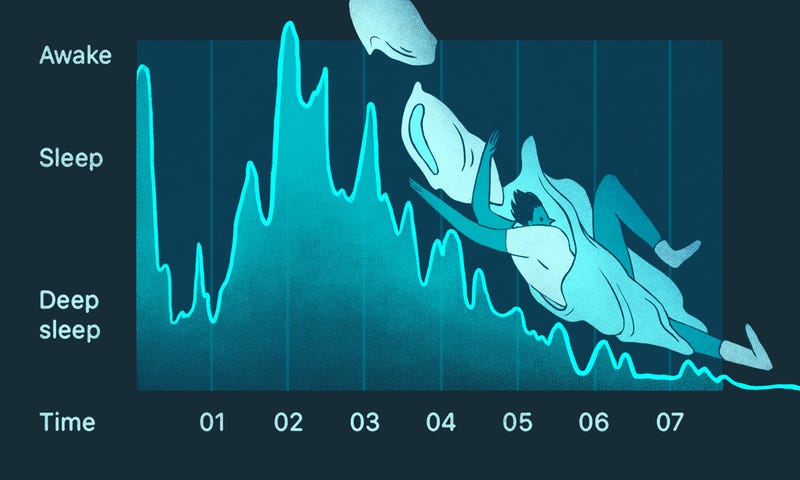What Sleep Tracking Apps Can and Can’t Tell You.

Activity trackers and sleep tracking apps will happily give you stats on your sleep: How many hours you were in the sack, for example, and whether that sleep was good “quality.” But you can’t take those numbers at face value, and some of them are flat out wrong.
Sleep Trackers Don’t Really Analyze Your Sleep (Even If They Say They Do)
We talked to Dr. W. Christopher Winter, a specialist in sleep medicine and neurology and author of The Sleep Solution. Dr. Winter previously brought Fitbit, Jawbone, and phone-based trackers to his sleep lab, and strapped them all to his arm. All of the gadgets could tell when he went to bed and when he woke up, but none of them could reliably tell the different stages of sleep (like REM or dreaming sleep) from each other.
Wearable devices track sleep by movement, as do apps like Sleep Cycle and Sleep as Android, either by detecting when your bed moves or by listening for sounds during the night.
So you can ignore the number FitBit gives you for “sleep efficiency,” or Sleep as Android’s opinion on how much time you spent in “light” versus “deep” sleep. There’s no way they could possibly have a complete picture of when you were truly asleep, or what stage of sleep you were in.
It’s also normal to move during sleep, and to wake up a few times during the night. We usually don’t remember these movements or awakenings. So if you see them on your sleep tracker’s output, don’t worry. As long as you feel well-rested in the mornings, the movements aren’t a problem.
Sleep Trackers Are Great for Detecting Patterns Over Time
Where apps and trackers excel, on the other hand, is their ability to give you big picture data. “It’s very difficult to get 30 days of in-lab polysomnographic data,” says Dr. Winter, but easy to wear a FitBit or sleep next to your phone for that time.
On the other hand, Dr. Winter decided to track his own sleep, and found that he stayed up later than he thought he did. “It told me very bluntly, ‘Hey man, you’re telling everybody you’re getting 7 hours of sleep, you’re a fuckin’ liar, you’re only getting 6 hours and 15 minutes, on average.’ That’s not enough.” He now puts more effort into making sure he gets to bed on time, instead of getting distracted with late night tasks and TV.
Experiment on Yourself and Focus on the Big Picture
Dr. Winter suggests one more benefit of sleep trackers: they let you test, for yourself, what really does and doesn’t affect your sleep.
If you don’t believe that alcohol can harm your sleep, you can compare how you sleep on nights you drink heavily with nights you don’t and see for yourself. Or if you can’t stand to put away your phone in the evenings, try it for a week and see if your sleep improves.
But if you don’t have a particular question or concern about your sleep, it may be best to ignore your sleep data for now, and there’s little reason to go invest in a sleep tracker “just because.” Just because it’s possible to measure a number doesn’t mean it’s a number worth worrying about, or even one that’s medically useful. Use your sleep tracker as a tool to address problems or questions that you have, not as an all-knowing judge of whether you’re sleeping the “right” way.
Illustration by Angelica Alzona.




